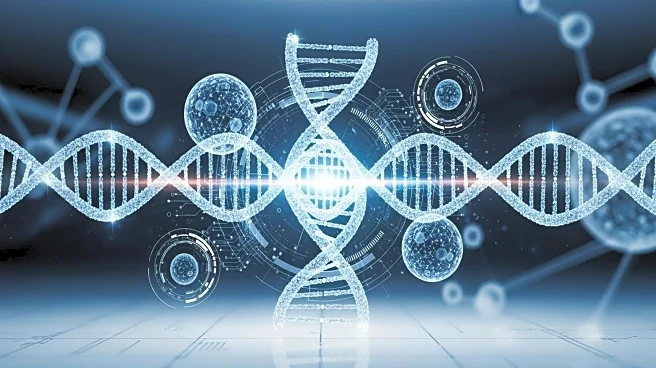What's Happening?
NeoGenomics, Inc., a prominent provider of oncology diagnostic solutions, is set to present its RaDaR ST molecular residual disease (MRD) assay at the European Society for Medical Oncology (ESMO) Congress
2025 in Berlin, Germany. The RaDaR ST assay utilizes whole-exome sequencing data from tumor samples and advanced bioinformatics to create patient-specific MRD panels. This technology aims to accelerate and optimize oncology drug development by providing real-time insights into tumor dynamics and treatment responses. NeoGenomics will feature the assay alongside its broader oncology testing and research capabilities, highlighting its commitment to advancing precision medicine in collaboration with pharmaceutical partners.
Why It's Important?
The introduction of the RaDaR ST assay by NeoGenomics is significant as MRD is increasingly recognized as a preferred method for monitoring responses to next-generation therapies. By offering highly sensitive and specific detection of circulating tumor DNA (ctDNA) from plasma samples, the assay provides critical insights that can drive faster, more informed decisions in cancer research and treatment. This development positions NeoGenomics as a key partner for biopharma organizations seeking to advance precision oncology, potentially leading to improved patient outcomes and more efficient drug development processes.
What's Next?
NeoGenomics plans to continue supporting drug development and interventional clinical trials with its RaDaR ST assay. The company is expected to engage with pharmaceutical sponsors at the ESMO Congress, showcasing its innovation and operational excellence in oncology trials. As MRD technology gains traction, NeoGenomics may expand its collaborations and partnerships, further solidifying its role in the precision oncology landscape.
Beyond the Headlines
The launch of the RaDaR ST assay could have broader implications for the field of oncology diagnostics. By enhancing the ability to monitor tumor dynamics and treatment responses, this technology may contribute to more personalized and effective cancer therapies. Additionally, the assay's real-time insights could lead to shifts in how clinical trials are conducted, potentially reducing the time and cost associated with drug development.









